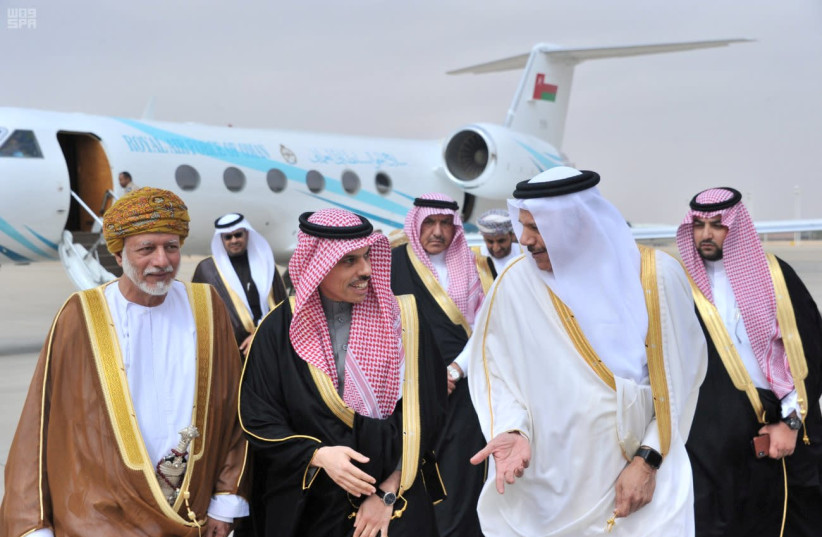WASHINGTON - Secretary of State Antony Blinken met on Saturday with French Foreign Minister Catherine Colonna, German Foreign Minister Annalena Baerbock, and UK Foreign Secretary James Cleverly on the sidelines of the Munich Security Conference.
According to the State Department, “they underscored their concern about Iran’s nuclear escalation and its lack of cooperation with the International Atomic Energy Agency, calling on Iran to reverse course.”
“They also discussed their concerns about the deepening two-way military cooperation between Iran and Russia, and its implications for the security and stability of the region and beyond,” said the State Department. “The leaders reaffirmed their solidarity with the Iranian people in light of Iran’s continued egregious human rights abuses and agreed to continue to closely coordinate their approach to the regime’s destabilizing activities.”
On Thursday, the US State Department and the Gulf Cooperation Council (GCC) released a joint statement on Thursday, and condemned Iran’s “continued destabilizing policies, including its support for terrorism and the use of advanced missiles, cyber weapons, and Unmanned Aircraft Systems (UAS) and their proliferation in the region and around the world.”
“Iran and its proxies and partners have used these Iranian weapons in attacks striking civilians, critical infrastructure, and international maritime shipping,” the joint statement reads.

The sides convened a meeting of the Working Group on Iran at the GCC’s headquarters in Riyadh on Wednesday. “The United States and GCC member states raised their grave concerns about the Iranian military’s deepening two-way cooperation with state and non-state actors, including Iran’s ongoing provision of conventional weapons, advanced missiles, and UAS systems to the Houthis that have prolonged the conflict in Yemen, worsening the humanitarian disaster there,” they stated. “The United States and GCC member states affirmed that Iran’s ongoing proliferation of weapons to state and non-state actors poses a grave security threat to the region and the entire world.”
They went on to state that Iran’s nuclear advances as documented by the IAEA, including the production of highly enriched uranium, “have no credible civilian purpose and are gravely exacerbating regional and global tensions.”
Demands from Iran
The US and the GCC called on Iran “to immediately reverse course, cease its nuclear provocations, engage in meaningful diplomacy, and fully cooperate with the International Atomic Energy Agency (IAEA) investigations into particles of nuclear material found at undeclared locations in Iran, consistent with Iran’s safeguards obligations.”
“The United States reaffirmed President Biden’s commitment not to allow Iran to acquire a nuclear weapon,” the statement reads.
The sides also “expressed their commitment to expanding defense cooperation and interoperability to enhance their capabilities to constrain Iran’s ability to conduct destabilizing activities and deter it from conducting future acts of aggression.”
According to the joint statement, “they reiterated that, in their view, diplomacy remained the preferred way to address Iran’s destabilizing policies and nuclear escalation in a sustained manner, and they emphasized that Iran’s leadership could choose a better alternative that would contribute to a more secure and stable region and benefit the Iranian people.
They urged the international community to enforce all relevant United Nations Security Council Resolutions prohibiting transfers of arms and related materiel and ensuring accountability in this regard.”
